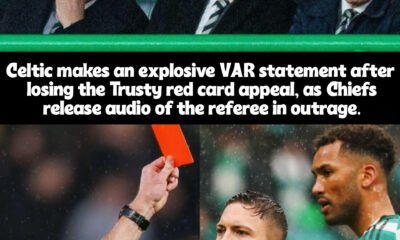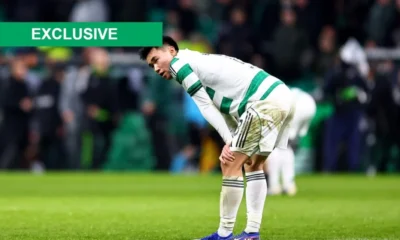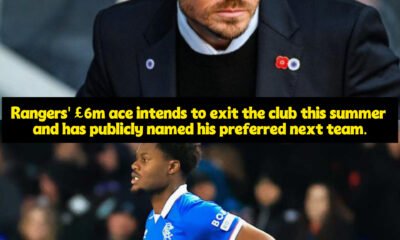Blog
Guns N’ Roses Bring Fire and Redemption at Ozzy Osbourne Tribute: A Night of Memory, Music, and Survival
When Guns N’ Roses took the stage at the Ozzy Osbourne tribute concert, the atmosphere inside the arena shifted from reverence to raw electricity. The event was already drenched in history, honoring a man who carved heavy metal into the bedrock of music, but the moment Axl Rose gripped the mic and Slash slung his Les Paul over his shoulder, it became clear that this wasn’t just another performance—it was a resurrection. Axl stood defiant and fierce, his voice carrying that unique blend of venom and soul that has defined him for decades, while Slash’s guitar snarled with every note, each bend and scream from the strings sounding like both an homage and a rebellion. His top hat cast its eternal shadow, his curls draped down like a curtain of mystery over a face that had lived through battles, excess, and triumph, and as the opening chords of that song rang out—a song forged in the darkest hours of their friendship—the entire arena felt the weight of something greater than music. It was memory. It was survival.
Decades earlier, the bond between Axl and Slash had fractured under the weight of ego, addiction, and chaos. At the height of their fame, Axl had famously called Slash out on stage for his spiraling, a moment that tore open the cracks already running through the band. What followed was years of silence, bitterness, and the sort of wounds that fans thought would never heal. Guns N’ Roses became the ultimate rock tragedy: a band too brilliant, too self-destructive, and too stubborn to survive intact. For years, fans clung to the fantasy of reconciliation, but it always seemed impossible. Yet, as life often proves, sometimes it takes loss—or the shadow of it—to bring people back together. Ozzy’s farewell, a night that celebrated not just music but the resilience of human spirit, offered the stage where these two men could stand side by side again, not as enemies or reluctant colleagues, but as brothers who had walked through fire and come out scarred, but still alive.
The song they chose was not random. It was personal. It was heavy with history. Every lyric cut deeper because of what they had endured together and apart. Axl’s voice, sharper and older but no less powerful, carried the anguish of years gone by. Slash’s guitar solo soared like a scream from the past, but instead of bitterness, it felt cathartic, a cleansing of wounds long left to fester. The crowd, thousands strong, knew they were witnessing something historic. This wasn’t just a tribute to Ozzy—it was a tribute to survival, to the stubbornness of rock and roll, and to the strange, brutal, beautiful ways in which time heals even the deepest rifts.
Sharon Osbourne watched from the side of the stage, tears in her eyes. She understood better than anyone the price of survival in this world, the sacrifices behind the glory. For her, seeing Guns N’ Roses rise together for Ozzy was symbolic: it was proof that even broken bonds could be mended when the music demanded it. Fans in the audience cried, cheered, and sang along, their voices joining with Axl’s in a communal exorcism. Some had waited decades to see these two men face the world together again, and the weight of that catharsis was as much theirs as it was the band’s.
Between songs, Axl paused, his usual sharp tongue softened by the gravity of the night. “Ozzy showed us all what it means to keep going,” he said, his voice cracking slightly. “No matter how dark it gets, no matter how far you fall, you keep fighting. Tonight isn’t just about saying goodbye—it’s about saying thank you. And it’s about remembering we’re all still here. Somehow.” Slash, usually silent, raised his guitar in salute. The crowd roared.
The set rolled through classics that once defined an era: “Sweet Child O’ Mine,” “Paradise City,” and even a thunderous version of “Welcome to the Jungle” that shook the arena walls. Yet it was the quieter, more vulnerable moments that stole the night. Axl and Slash sharing a glance mid-song, an unspoken acknowledgement of everything they had been through. Duff McKagan’s steady bass lines anchoring them like a heartbeat, steady and reliable through decades of turbulence. It wasn’t perfection—they missed notes, Axl strained on high registers—but that wasn’t the point. The point was that they were there, together, alive, and honoring the man who paved the road they walked on.
For Ozzy’s fans, it was a fitting tribute. For Guns N’ Roses fans, it was a miracle. And for the world of rock and roll, it was a reminder that the music that comes from pain, chaos, and survival is the most enduring of all. The arena became a cathedral that night, not of religion, but of resilience. Ozzy’s shadow loomed large, his presence felt in every cheer and every tear, but Guns N’ Roses turned the spotlight inward as well, showing that their story, too, was one of impossible survival.
As the night closed, the band launched into “Knockin’ on Heaven’s Door,” their Dylan cover that had become an anthem of mortality and defiance. Thousands of voices rose in unison, the lyrics suddenly more poignant than ever. Axl sang not as a provocateur, but as a man who knew how fragile life was. Slash’s solo wove through the chorus like a prayer, every note aching with gratitude and release. Fans held their phones aloft, lights glowing like stars, as if the heavens themselves had opened for Ozzy, for Guns N’ Roses, for every fallen rock soldier who had paved the way.
When the final chord rang out, Axl and Slash embraced. It wasn’t a grand gesture, not staged for cameras, but it was real. Two men who had once sworn they’d never share a stage again now held onto each other in front of tens of thousands, their feud buried under the sheer force of music and memory. The crowd erupted, some cheering, some weeping, all knowing they had just witnessed a chapter of rock history that would be told for generations.
Ozzy Osbourne’s tribute concert was always meant to be a celebration of his life and legacy, but in the end, it became something more. It became a reminder of what rock and roll truly is: not just noise, not just rebellion, but survival. Guns N’ Roses didn’t just play for Ozzy that night—they played for themselves, for each other, and for everyone who has ever needed music to make it through. In the end, it wasn’t just a performance. It was memory. It was forgiveness. It was survival.
-

 Blog2 days ago
Blog2 days agoCeltic issues a fiery VAR statement after Trusty’s red card appeal is dismissed, as furious chiefs release referee audio publicly.
-

 Blog2 weeks ago
Blog2 weeks agoCeltic informed their January signing under Martin O’Neill that he wouldn’t play a single minute this season.
-

 Blog2 days ago
Blog2 days agoCeltic issued an £83 million warning amid looming UEFA threats.
-

 Blog9 months ago
Blog9 months ago“Courtside to Aisle-Side: Tyrese Haliburton and Jade Jones Set New Wedding Date”
-

 Blog5 days ago
Blog5 days ago£6m star is looking to leave Rangers this summer and has already announced his next club publicly.
-

 Blog4 days ago
Blog4 days agoAuston Trusty under intense Celtic red card investigation amid new Hibs ‘punch’ claims and Rangers’ appeal review.
-

 Blog2 weeks ago
Blog2 weeks agoKyogo perceives Celtic’s transfer veto as a fresh insult as the striker is overlooked by Birmingham’s new boss.
-

 Blog9 months ago
Blog9 months agoPat Kelsey sends a strong three-word fiery message to the Louisville basketball’s team after their Cardinals 14th win…
